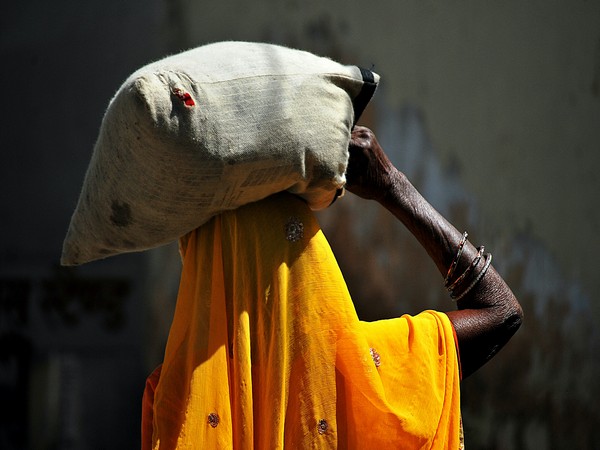
New Delhi: India takes longer strides in poverty alleviation India has achieved the unimaginable feat of lifting 415 million people out of poverty in just 15 years, thanks to the special measures and schemes, which addressed multi-dimensional challenges, associated with health, education, and living standard, with great efficiency.
In 2019, India was credited for pulling 271 million people out of poverty between 2006 and 2016. In the next five years, the figure touched 415 million, underlining the fast pace India is carrying out its poverty eradication drive at.
The positive results shown by the government of India's efforts have been appreciated by the International Monetary Fund (IMF) and the World Bank. The IMF said India’s extreme poverty remained below 1 percent even during the Covid-led pandemic when it had increased globally. Now, the percentage of extremely poor is expected to go below 3 percent in India by 2024, as per the World Poverty Clock.
India tops the list of 25 countries that halved multidimensional poverty in 15 years, as per the latest Multidimensional Poverty Index (MPI) that is jointly prepared by the UN Development Programme (UNDP), the Oxford Poverty and Human Development Initiative (OPHI). “Notably, India saw a remarkable poverty reduction, with 415 million people exiting poverty within a span of just 15 years,” reads the report. “The poorest states and groups, including children and people in disadvantaged caste groups, had the fastest absolute progress.”
The government of India undertook a slew of measures and implemented effective schemes to enhance the pace of poverty alleviation in the country. The constant upward economic growth of the county has had a positive impact on poverty eradication. However, India’s special emphasis on financial inclusion played a crucial role in lifting poor communities out of poverty. A scheme named ‘Jan Dhan Yojana’ has helped enrol 495.6 million people in the banking system, of which 330 million are from rural areas while 275 million are women.
A research article published in the European Journal of Development Research appreciated Jan Dhan Yojana to strengthen the fight against poverty and gender inequality and to support the attainment of the UN's Sustainable Development Goals (SDGs). “Government policy has explicitly prioritised access to the banking system as an instrument for improving financial inclusion, reducing poverty and increasing inclusive growth,” reads the article, authored by UK-based economist Duvendack M.
Mahatma Gandhi National Rural Employment Guarantee Scheme (MGNREGS) turned out to be a game-changer for India’s poverty alleviation efforts. The scheme, which gives a legal guarantee of 100 days of employment every year, is responsible for reducing poverty by a third. UNICEF official Usha Hayes called MHNREGS a “big success story” of recent times in India. “NREGA has been a success and has provided protection from starvation to vulnerable sections of the population," Hayes said.
India launched National Rural Livelihoods Mission (NRLM) a decade ago, in which the poor were enabled to enhance their incomes through sustainable means. With the contribution from the World Bank, the NRLM has helped prepare the poor for self-employment and improved job skills, besides strengthening access to public services and entitlement and addressing important issues related to food security, health and nutrition. It has impacted at least 84.6 million women in rural India so far.
Also, India came up with the National Urban Livelihoods Mission (NULM) to address the challenges of poverty in cities through entrepreneurship. The United Nations Development Programme (UNDP) has joined the initiative. “Women entrepreneurship is a proven strategy for poverty alleviation, financial independence, and reshaping gender norms.
UNDP and NULM are coming together to build this inclusive entrepreneurship ecosystem,” said UNDP official Shoko Noda. Indian Prime Minister Narendra Modi has said, “To remove poverty, we need to strengthen the hands of the poor.” The government of India has regularly promoted poverty alleviation programmes through well-targeted subsidies and income support. Financial support for farmers, free LPG connections in rural areas, affordable housing, and free health insurance are allowing better living conditions. India has almost wiped out extreme poverty and is inching closer to complete poverty eradication.